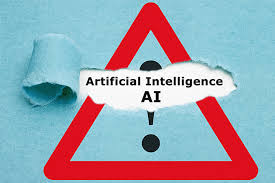Emerging Risks in Artificial Intelligence and Automation: Ethical Considerations, Job Displacement, and Data Privacy Concerns. In today’s rapidly evolving technological landscape, the adoption of artificial intelligence (AI) and automation is transforming industries and redefining the future of work. While these technologies promise significant benefits, including increased efficiency, cost savings, and innovative capabilities, they also bring with them a host of emerging risks that must be carefully managed. Among the most pressing concerns are ethical considerations, job displacement, and data privacy.
Ethical Considerations
One of the foremost challenges in the deployment of AI and automation is ensuring that these technologies are used ethically. AI systems, driven by complex algorithms and vast datasets, have the potential to reinforce existing biases and perpetuate unfair treatment. For instance, facial recognition technology has faced scrutiny for its higher error rates in identifying individuals with darker skin tones, leading to concerns about racial bias and discrimination.
Furthermore, the decision-making processes of AI systems often lack transparency, making it difficult to understand how conclusions are reached. This “black box” nature of AI can result in decisions that are not easily explainable or accountable, posing ethical dilemmas in areas such as healthcare, criminal justice, and finance. To address these issues, organizations are increasingly advocating for the development of AI systems that are fair, transparent, and accountable, along with the establishment of ethical guidelines and oversight mechanisms.
Job Displacement
The rise of AI and automation also raises significant concerns about job displacement. As machines and algorithms become capable of performing tasks previously done by humans, there is a growing fear that widespread automation could lead to significant job losses. Industries such as manufacturing, retail, and customer service are particularly vulnerable, with tasks ranging from assembly line work to data entry being increasingly automated.
However, the impact of automation on employment is complex and multifaceted. While certain jobs may be displaced, new opportunities are likely to emerge in areas such as AI development, maintenance, and oversight. To mitigate the adverse effects of job displacement, it is crucial for governments and businesses to invest in reskilling and upskilling programs, ensuring that the workforce is equipped with the skills needed to thrive in an automated world.
Data Privacy Concerns
The proliferation of AI and automation technologies also brings heightened concerns about data privacy. AI systems often rely on large datasets to function effectively, which necessitates the collection and analysis of vast amounts of personal information. This raises critical questions about how data is collected, stored, and used, and who has access to it.
High-profile data breaches and misuse of personal information have highlighted the vulnerabilities associated with data privacy in the age of AI. For instance, incidents such as the Cambridge Analytica scandal have underscored the potential for personal data to be exploited for purposes beyond the individual’s consent, leading to a loss of trust in digital platforms.
To address these concerns, robust data protection regulations, such as the General Data Protection Regulation (GDPR) in Europe and the California Consumer Privacy Act (CCPA) in the United States, have been enacted. These regulations aim to give individuals greater control over their personal data and ensure that organizations adhere to strict data privacy standards. However, the rapid pace of technological advancement often outstrips the development of regulatory frameworks, necessitating continuous updates and enhancements to data protection laws. Risks in Artificial Intelligence
Conclusion
As AI and automation technologies continue to advance, the associated risks of ethical considerations, job displacement, and data privacy cannot be overlooked. It is imperative for policymakers, industry leaders, and technologists to work collaboratively to address these challenges and develop strategies that harness the benefits of AI while mitigating its risks. By fostering ethical AI practices, supporting workforce transitions, and safeguarding data privacy, society can navigate the complexities of this technological revolution and ensure that its benefits are shared broadly and equitably.














